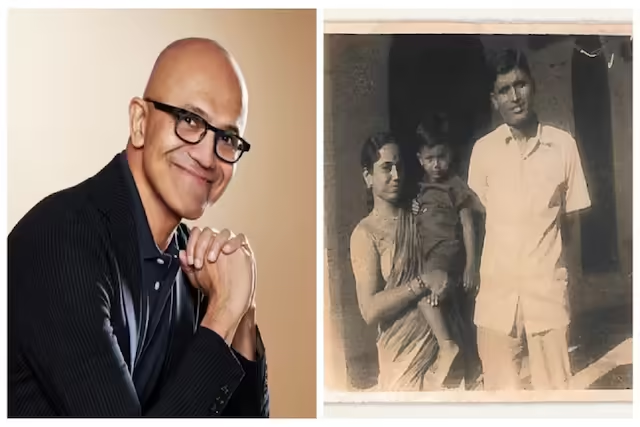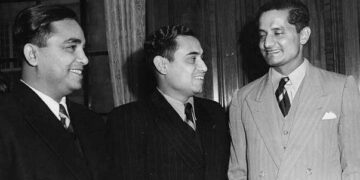Major Dhyan Chand (English: Major Dhyan Chand; born: 29 August, 1905, Allahabad; died: 3 December, 1979, New Delhi) was an Indian hockey player, who is counted among the best players of all time. It has to be acknowledged that till date no player in the world has been able to come close to the popularity record set by Dhyan Chand in the game of hockey. Major Dhyan Chand practiced a lot even at night, hence he was given the nickname ‘Chand’ by his fellow players. Actually, his practice started when the moon rises. In 1979, Dada Dhyan Chand died after going into a coma, but as long as he remained conscious, he remained concerned about Indian hockey. There has neither been nor will be a player like Dhyanchand in hockey. As great a player as he was, he was also a kind-hearted person. The real name of this hockey magician was Dhyan Singh, but when he took up hockey in the army under the guidance of Bale Tiwari, everyone started affectionately calling him Dhyan Chand and thus his name became Dhyan Chand.
life introduction
Hockey magician Dada Dhyan Chand was born on August 29, 1905 in an ordinary Rajput family of Prayag (Allahabad). Later his family came to Jhansi from Allahabad. There were no special signs of sportsmanship visible in his childhood life. Therefore, it can be said that the talent for the game of hockey was not innate, rather he had earned this reputation with the help of continuous practice, dedication, struggle and determination. After receiving ordinary education, at the age of 16, he joined the army as an ordinary soldier. Till the time he joined the ‘First Brahmin Regiment’, he had no special interest or interest in hockey. The credit for inspiring Dhyanchand to play hockey goes to Major Tiwari, a Subedar of the regiment. Major Tiwari himself was a hockey lover and player. Under his tutelage, Dhyanchand started playing hockey and within no time he became a great player in the world.
game introduction
Dhyan Chand is considered equivalent to Pele in football and Bradman in cricket. The ball would stick to his stick to such an extent that the opponent would often suspect that he was playing with a magic stick. Even in Holland, his hockey stick was broken due to the suspicion that it contained a magnet. In Japan, seeing the way the ball used to stick to Dhyanchand’s hockey stick, it was said that his hockey stick had glue on it. There are more stories of Dhyanchand’s hockey skills than have ever been heard about any other player in the world. Seeing his hockey artistry, not only the hockey fans would say wow, but even the players of the rival team would lose their senses and get busy watching his artistry. Fascinated by his artistry, Germany’s stubborn emperor like Rudolf Hitler had offered him to play for Germany. But Dhyanchand always considered playing for India to be the greatest pride. A statue of Dhyanchand with four hockey sticks in his hands was installed in Vienna and showed what a great player Dhyanchand was. All these incidents may sound exaggerated, but all these things have once been a reality.
Dhyanchand represented India in three Olympic Games and won gold medals for the country all three times. The statistics also show that he was truly a hockey magician. India scored 338 goals in 37 matches in 1932, of which Dhyan Chand scored 133 goals. Before the Second World War, Dhyan Chand led India to gold medals in hockey in three consecutive Olympics in 1928 (Amsterdam), 1932 (Los Angeles) and 1936 (Berlin). If the Second World War had not happened, he would probably have been the first player in the world to participate in six Olympics and there is no doubt that the gold medal in all these Olympics would also have been in India’s name.
Once in 1933, he went to Rawalpindi to play a match. This incident is being mentioned here because today the feeling of indiscipline is increasing among the players in the game of hockey and there is a lot of violence between the players in the playground. The match was being played between 14 Punjab Regiment (which included Dhyan Chand) and the Sappers and Miners team. Dhyanchand had reached the peak of fame at that time. He shattered the opponents’ defense with his brilliant game and mesmerized the audience. Due to this, the centre-half of the opposing team lost his balance and inadvertently hit Dhyanchand’s nose. The game was stopped immediately. After first aid, Dhyanchand returned to the field with his nose bandaged. He patted the back of his opponent and said with a smile, “Play carefully so that I don’t get hurt again.” After that Dhyanchand came out for revenge. One can only imagine how ideal their revenge is. He scored 6 goals together. This is truly a quality of a great player. This increases the level and prestige of the sports player.
The Indian team participated for the first time in the Amsterdam Olympic Games in 1928. Before playing in Amsterdam, the Indian team played 11 matches in England and Dhyanchand got special success there. The Indian team won all the first matches in Amsterdam. India defeated Australia 6-0, Belgium 9-0, Denmark 6-0, Switzerland 6-0 and thus the Indian team reached the finals. There was a contest between India and Holland in the final. In the final match, India defeated Holland 3-0. Dhyanchand scored two goals in this.
Dhyanchand was also included in the team in the Olympic competitions held in Los Angeles in 1932. At that time he had achieved a lot of success and fame as a center forward. Then he became a hero after ‘Lance-Nayak’ in the army. India played many matches during this tour. In this entire journey, Dhyan Chand himself scored 101 out of 262 goals. In the deciding match, India defeated America 24-1. Then an American newspaper had written that the Indian hockey team was a storm from the east. With his speed he crushed eleven players of the American team.
Dhyan Chand was chosen the captain of the Indian team in the 1936 Berlin Olympic Games. On this he expressed surprise and said – “I had no hope at all that I would be chosen captain.” Well, he fulfilled his responsibility with great honesty. Narrating an unforgettable memory of his life, he says that on July 17, an exhibition match was organized for our practice with the German team. This match was played in Berlin. We lost by one goal to four. I cannot forget the shock I felt from this defeat as long as I live. We were all surprised to see the progress of the German team and some of our companions did not even like the food. Many friends could not sleep at night.
On August 5, India’s first Olympic match took place with Hungary, in which the Indian team defeated Hungary by four goals. In the second match, which was played on 7 August, the Indian team defeated Japan 9–0 and then defeated France by 10 goals on 12 August. There was a final match between the Indian and German teams on 15th August. Although the match was scheduled to be played on 14 August, it rained so much that day that the field was flooded and the game was postponed for a day. The fact that the German team had defeated India during practice had deeply stuck in everyone’s mind. Then our players became even more dejected due to the wet field and adverse conditions. Then Indian team manager Pankaj Gupta got an idea. He took the players to the dressing room and suddenly he placed the tricolor flag in front of us and said that the shame of this is now in your hands. All the players respectfully saluted the tricolor and entered the field like brave soldiers. Indian players played fiercely and defeated the German team 4-1. That day the tricolor was truly disgraced. Who knew at that time that 15th August would become India’s Independence Day.
It is said that during the match the ball remained stuck to Dhyanchand’s stick all the time. The spectators were surprised to see this, but some officials started doubting whether Dhyanchand’s stick was fitted with something that would attract the ball towards itself. The matter escalated and resolution of doubts was considered necessary. The soldier was asked to play with the second stick, but when Dhyan Chand hit a series of balls with the second stick, the German officers were convinced that the magic was not in the stick but in his elastic and strong wrists. The spectators there then started calling Dhyanchand the ‘magician of hockey’. In the 1936 Olympic Games, the Indian hockey team scored a total of 38 goals, out of which Dhyan Chand scored 11 goals.
After the 1936 Berlin Olympics, the 1946 and 1944 Olympic Games could not be organized due to World War II. After World War II, Dhyanchand retired from hockey, but hockey was his life partner. He started teaching Guru-Mantras to the youth. For a long time he continued training Indian teams at the National Institute of Sports (Patiala). He got promotion in the army only because of the game of hockey. In 1938 he got ‘Viceroy’s Commission’ and became Jamadar. After that, one after the other, others became Subedar, Lieutenant and Captain. Later he was made Major.
He joined the Indian Army in 1922 and went on a tour of New Zealand with the army team in 1926. After playing in the 1928 and 1932 Olympic Games, Dhyan Chand led the Indian team in the Berlin Olympics in 1936 and defeated Germany in the final by scoring six goals himself. He scored a total of 133 goals in India’s world-winning tour in 1932. Dhyanchand played his last international match in 1948. He scored more than 400 goals in international matches.
Nandi Singh, who played for India in 1948 and 1952, says that the specialty of Dhyan Chand’s game was that he did not keep the ball with him for long. He was very measured and could score goals from any angle. In a match during the tour of East Africa in 1947, Dhyan Chand gave a tremendous pass to KD Singh Babu and turned his back towards him and started walking towards his own goal. Later, when Babu asked the reason for his strange behavior, he said that if you are not able to score a goal even on that pass, then you have no right to remain in the Indian team. His son Olympian Ashok Kumar also says that even at the age of 50, during practice, he could hit ten out of ten shots from inside the D while dodging the Indian goalkeeper. Olympian Keshavdutt says that Dhyan Chand used to look at the hockey field in the same way as a chess player looks at the chess board. He always knew where every player on his team was and even if he was blindfolded, his passes would still reach the right place. Gurubaksh Singh, who was the captain of the Indian hockey team in the 1968 Mexico Olympics, also recalls that in 1959, when Dhyan Chand was 54 years old, no member of the Indian team could snatch the ball from him in the bully.
With his charismatic hockey, Dhyan Chand had convinced not only the German dictator Hitler but also the great cricketer Don Bradman. It is also a coincidence that the births of these two great personalities of the sports world fall within two days. The world celebrated the birth centenary of Bradman on 27th August and is ready to pay tribute to Dhyan Chand on 29th August, which is celebrated as Sports Day in India. Bradman was three years younger than the hockey wizard. These two sports personalities, experts in their respective fields, had met each other only once. It was 1935 when the Indian team went on a tour of Australia and New Zealand. Then the Indian team was in Adelaide for a match and Bradman also came there to play the match. Both Bradman and Dhyan Chand met each other then. Bradman then, after watching the hockey magician’s game, said that he scores goals in the same way as runs are scored in cricket. Not only this, when Bradman later came to know that Dhyanchand had scored a total of 201 goals in 48 matches in this tour, his comment was whether it was scored by a hockey player or a batsman. A year later, Dhyanchand had even convinced Hitler of his hockey in the Berlin Olympics. At that time, not only Hitler, but also the hockey lovers of Germany had only one name in their hearts and that was Dhyanchand. He was awarded the Padma Bhushan in 1956. His birthday has been declared the National Sports Day of India. On this day, national awards Arjuna and Dronacharya Awards are given for excellent performance in sports. The Indian Olympic Association had declared Dhyan Chand as the player of the century.
Awards and Honors
Major Dhyanchand, who remained like a magician at the top of the world hockey world for quarter of a century, died in New Delhi at 4:25 am on December 3, 1979. In Jhansi, his last rites were performed not at any ghat but at the ground where he used to play hockey. In his autobiography ‘Gol’ he had written, “You should know that I am a very ordinary man.” He was not an ordinary man but he left this world like an ordinary man. In 1979, Dada Dhyan Chand died after going into a coma, but as long as he remained conscious, he remained concerned about Indian hockey. He always told his son Ashok, “My dream is that Indian hockey should once again reach the golden age. Now my old body may not have the strength, but I want to see Indian hockey in a respectable position so that I can “To feel young.”






